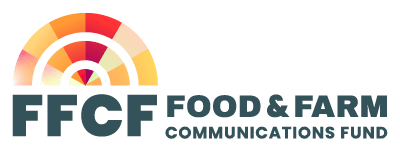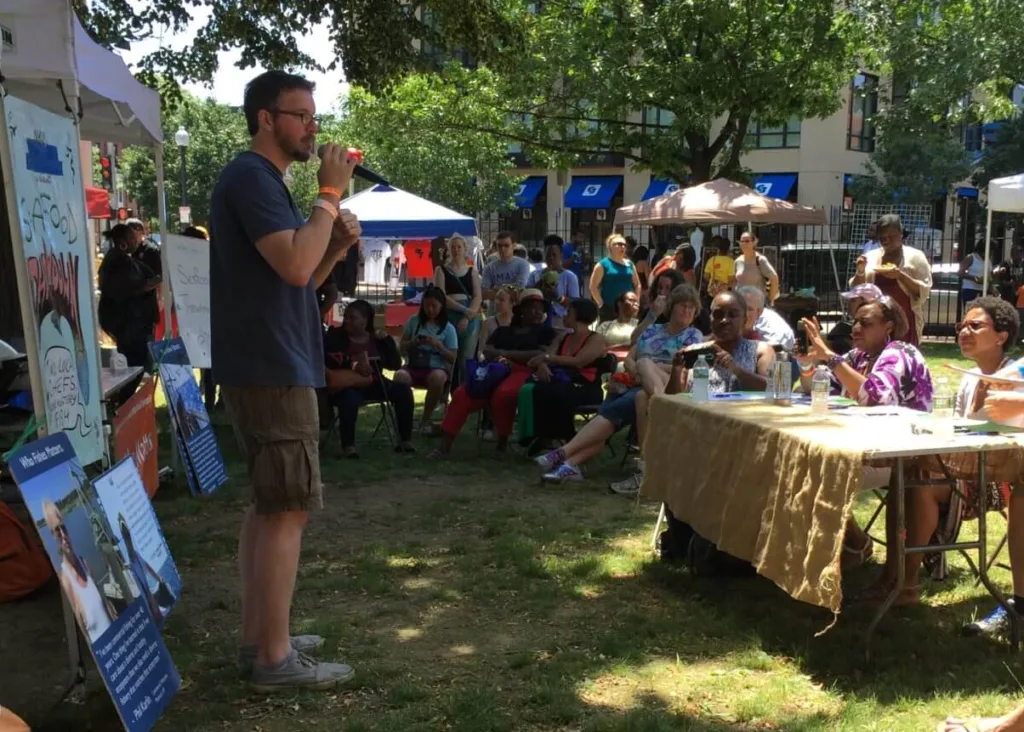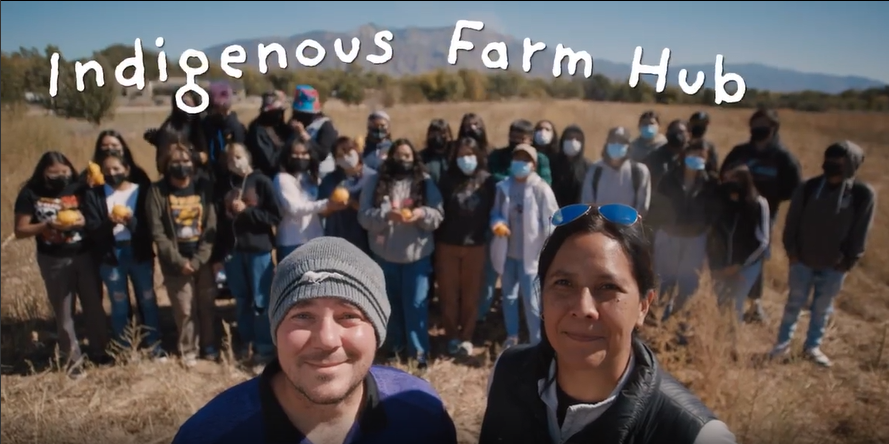Growing the power of cultural organizers to shift narratives
En Espanol
Food & Farm Communication Funds’ Wildseeds Grants program is our primary offering for non-profit, grassroots organizations.
Wildseeds, inspired by the wisdom of writer Octavia Butler, speaks to our community’s commitment to justice and systemic transformation while ensuring thriving communities. Wildseeds possess a resilience that enables them to resist, spread, and flourish, just like our movements. Through Wildseeds Grants, we resource movement organizers by investing in solutions that support the development of their ideas, amplification of their messages, and their long-term movement infrastructure.
WILDSEEDS Grants Program
The Wildseeds Grants program funds community organizations, strategists and media makers working to uplift frontline stories, build power, and embolden transformative food and farm systems change. We do this all in an effort to grow deeper roots with our grantee partners by making sure they have the infrastructure, communications skills, and strategic support they need to thrive now and forever.
Our team uses a participatory grantmaking framework to build trust with our community and to inform our community project development decisions. Since 2012, we've invested over $5 million into grassroots organizations and media efforts to shift food and farm narratives. Learn more about the Wildseeds Grants program below.
Base building communications projects that increase connectivity and grow collective power
Integrated communications planning
Communications-based professional development for staff/ leadership/ members
Implementing or upgrading communications tools
Development of content or creative media initiatives including videos, zines, websites, etc.
Sourcing short-term communications staffing support or outside consulting
Narrative development, message framing, and integration
Campaigns, events, or experiences that use communications to foster engagement around food and farm issues
Language justice planning and implementation
Range and term of wildseeds grants
Criteria and Restrictions
Applicant criteria
Is a U.S. based grassroots organization or network with 501(c)(3) status or with a 501(c)(3) fiscal sponsor; or a tribal government
Has an annual revenue of less than $3 million; or, if current revenue is over $3 million, has an average annual revenue over the last three years that is less than $3 million
Is not a recipient of a 2023 multi-year Core Grant
Is working on initiatives that directly affect change within food and agricultural systems (e.g. land sovereignty, food security, inclusive economy, water and soil stewardship, climate justice, labor organizing, sustainable/regenerative/reindigenized practices and healing traditions)
Operates from a deeply shared understanding of structural and institutional racism in the food and farm system and actively works to advance racial equity and justice
Is committed to integrating the leadership of constituents within the organization’s staffing, advising, and governance structures
Focuses on one or more of the following priorities: Cultural Organizing; Inclusive Economic Models & Community-Controlled Systems; Reclaiming Democracy; Promoting Indigenous and Ancestral Foodways and Agricultural Practices
Not eligible:
Organizations that do not have 501(c)(3) status or do not have a fiscal sponsor with 501(c)(3) status
Individuals or scholarship programs
Businesses or business associations
Private Schools, Colleges, or Universities
State agencies or government programs
The Food and Farm Communications Fund does not support the following activities: academic research projects; endowment campaigns; discretionary or emergency requests; or litigation or legal expenses.
Power-Building Priorities
Protecting and expressing culture is an act of resistance to the pressure of erasure. Rather than community organizing from a place of deficit, we strive to lift-up a counter narrative rooted in community cultural wealth and capacity and support work that centers cultural organizing.


